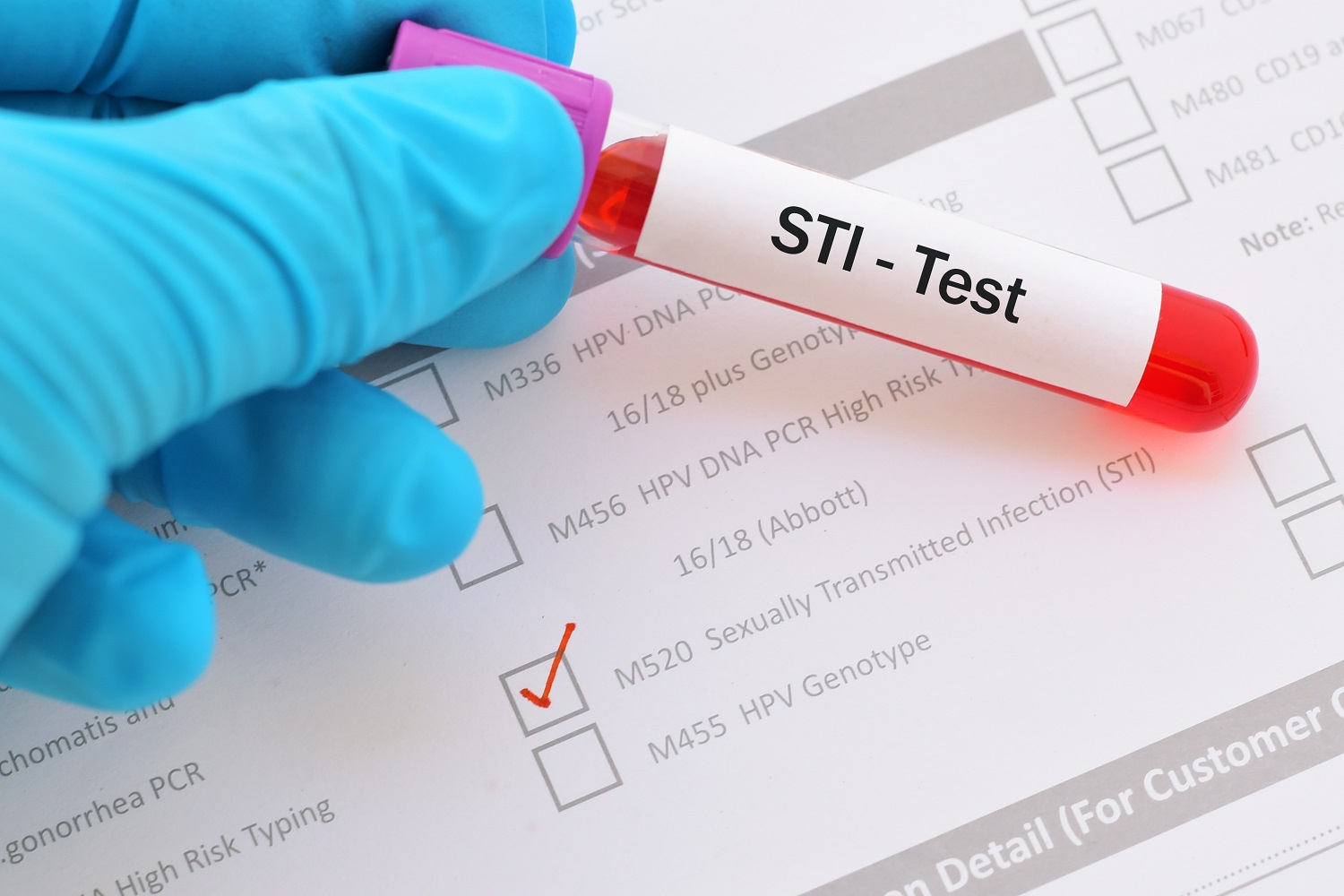Regular testing for sexually transmitted infections (STIs)—which can lead to sexually transmitted diseases (STDs)—is essential for any sexually active person, regardless of background, relationship status or sexual orientation. By making testing a routine part of your health care, you take a proactive step toward maintaining your sexual health and help prevent the spread of infections.
Even today, many patients often don't feel comfortable bringing up STIs—whether it's symptoms they might be experiencing or testing they might need. "Routine STI testing normalizes the conversation about sexual health, breaks down the stigma surrounding STIs and helps improve public health," said Charles Sonaliya, M.D., a physician with Inspira Medical Group Primary Care.
However, figuring out which tests are right for you can be challenging—let’s dive in.
The importance of regular STI testing
Regular STI testing is crucial for early detection and treatment of infections, reducing the risk of severe health complications and preventing the spread of STIs. “Sexually active individuals should get tested at least once a year or more frequently if they have multiple partners,” said Dr. Sonaliya.
You should also get tested before each new sexual partner, as soon as possible after unprotected sex and immediately if you have symptoms or think you've been recently exposed. “However, some STIs don't show up immediately after exposure, so you may need to get tested again in a few weeks or months,” said Dr. Sonaliya.
Common STIs
Common STIs that you should regularly get tested for include:
- Chlamydia: Often asymptomatic, but can cause painful urination and abnormal discharge if symptoms appear
- Gonorrhea: May cause burning during urination and abnormal discharge, though it can also be asymptomatic
- Human immunodeficiency virus (HIV): Early symptoms can include flu-like signs, but many people remain asymptomatic for years
- Syphilis: Presents with painless sores initially, followed by rashes and flu-like symptoms if untreated
- Hepatitis B and C: Can cause fatigue, jaundice and abdominal pain, but often show no early symptoms
- Herpes (HSV-1 and HSV-2): Causes painful blisters or sores on the mouth or genital area
- Human Papillomavirus (HPV): Often asymptomatic, but some strains cause genital warts or cervical cancer
“It’s important to have open and honest conversations with your sexual partners and talk with your doctor about your sexual activity so you can understand your risk factors and practice safe sex,” said Dr. Sonaliya.
Exploring the array of STI testing options
Understanding sexually transmitted infections (STIs) and knowing when to get tested is essential. There are various options for STI testing, including at-home test kits, clinic screenings, and rapid testing. “The most important thing is to get tested regularly, regardless of the method,” said Dr. Sonaliya.
At-home test kits
These kits allow you to collect samples, such as urine, blood or swabs, in the comfort of your home and then send them to a lab for analysis. Results are typically available online within a few days. “At-home kits are a great option for individuals who prefer discretion and flexibility,” said Dr. Sonaliya.
Common STIs tested with at-home kits include chlamydia, gonorrhea, HIV and syphilis. These at-home tests and collection kits can make it easier for you to get the process started, as they can be used in private and don't require a conversation that patients might find uncomfortable.
However, it’s vital to understand that some at-home tests are initial screenings that require follow-up with your doctor. False negatives and false positives do happen with at-home and rapid tests. This possibility is another reason to talk to your doctor after performing an at-home test or receiving rapid test results.
Clinic screenings
Clinic screenings are conducted at health care facilities, such as doctor's offices or public health clinics. These screenings involve a physical examination and sample collection by a health care professional, who can offer immediate advice and treatment options if necessary.
“Clinic screenings provide a more comprehensive evaluation of your sexual health,” said Dr. Sonaliya. “They can test for a wide range of STIs, including chlamydia, gonorrhea, HIV, syphilis, hepatitis B and C, herpes and HPV.”
Rapid testing
Available at some clinics, this method provides results within minutes, using a finger-prick blood sample or oral swab. Rapid tests are useful for quick results and for those with limited health care access, especially for STIs like HIV and syphilis. Rapid testing is also available for chlamydia and gonorrhea in some clinics.
Determining the right testing method for you
Choosing the right STI testing method is a personal decision that depends on your lifestyle, comfort level, type of STI and insurance coverage.
Your primary care provider can be a valuable resource in navigating the STI testing process. They can help you get tested and offer personalized advice based on your health history, risk factors and preferences. Remember, physicians are trained to discuss sensitive health issues and will not be judgmental about your condition. Instead, they’ll ensure you get an accurate diagnosis and the treatment you need. They can also provide education and counseling about STIs to help you understand your condition better.
“Discussing your sexual health with your provider can help you make informed decisions about testing and ensure you receive appropriate follow-up care if needed,” said Dr. Sonaliya. “They are there to help support you and your journey toward optimal sexual health.”
To book an appointment with a primary care provider, learn more here.

